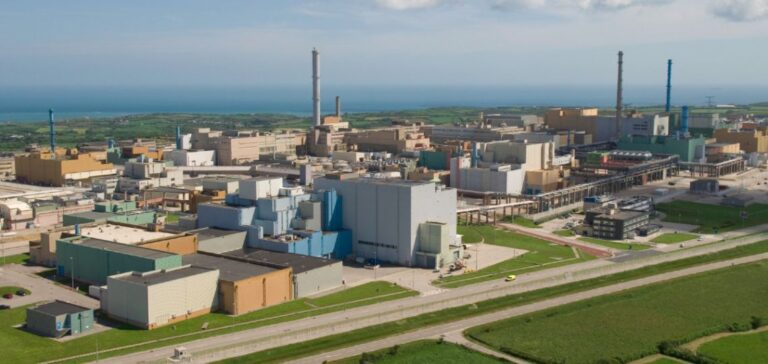Operations at Orano’s nuclear fuel reprocessing site at La Hague have restarted, following the incident that occurred on Monday. A leak of nitric acid, estimated at around 40 m³, had led to the temporary shutdown of operations and the departure of non-essential personnel.
Orano spokesman Sylvain Renouf confirmed that production had resumed at 10:30 a.m., following the completion of acid pumping operations at 5:00 p.m. the previous day. A reduced security perimeter was maintained, allowing all staff to return to work.
Impact of Nitric Acid Leakage
According to Orano, the incident presented no radiological risk and had no impact on the environment. Nitric acid, used in the process of dissolving nuclear materials, is highly corrosive and potentially dangerous to human health. However, strict safety measures and rapid intervention procedures enabled the situation to be contained without serious consequences.
Orano employs around 4,000 people at its La Hague site on the Cotentin peninsula. Every year, the plant processes and recycles almost 1,100 tonnes of spent fuel, mainly from French nuclear power plants, but also from a number of European countries and Japan.
Fuel treatment process
Spent fuel processing at La Hague involves several rigorous stages. After cooling in a pool, the fuel is sheared and immersed in a nitric acid bath. This process dissolves nuclear materials to extract uranium and plutonium. The nitric acid is then recovered and reused in the reprocessing cycle, minimizing waste and optimizing process efficiency.
Prevention and Safety
The nitric acid leak highlighted the importance of safety measures and incident response protocols at Orano. The company maintains high safety standards to protect its employees and the environment, while ensuring the continuity of its critical operations.
Orano officials are continuing to monitor the situation closely and analyze the causes of the leak to prevent any recurrence. This proactive approach is essential to guarantee the safety and reliability of nuclear fuel reprocessing operations.
Orano La Hague’s effective management of the incident underlines the importance of robust safety measures in the nuclear industry. The rapid resumption of operations and the absence of any radiological or environmental impact demonstrate the company’s resilience and rigor in the face of operational challenges.






















